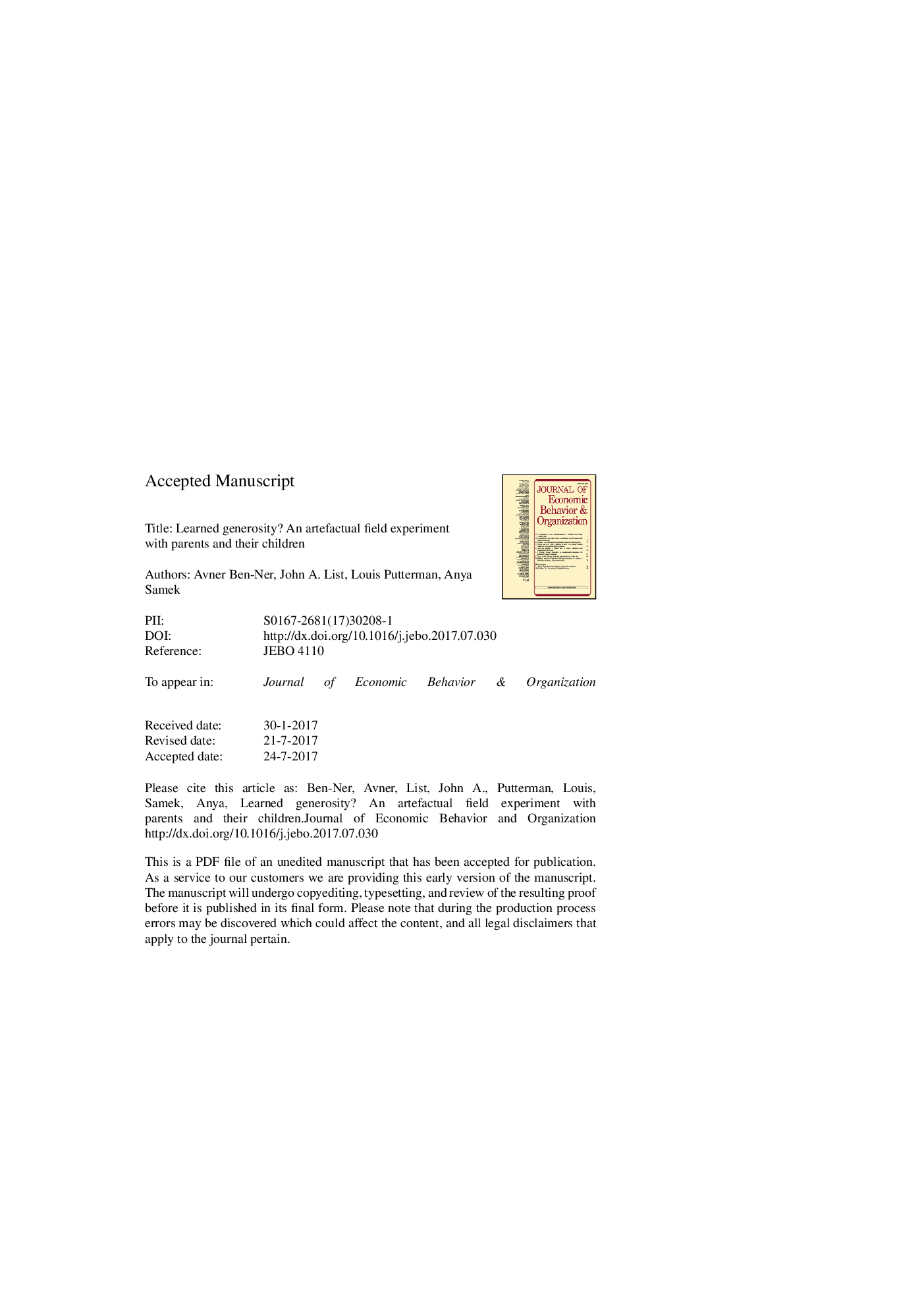ترجمه فارسی عنوان مقاله
سخاوتمندانه تحصیل کرد؟ یک آزمایش واقعی با والدین و فرزندان آنها
عنوان انگلیسی
Learned generosity? An artefactual field experiment with parents and their children
| کد مقاله | سال انتشار | تعداد صفحات مقاله انگلیسی |
|---|---|---|
| 140695 | 2017 | 44 صفحه PDF |
منبع

Publisher : Elsevier - Science Direct (الزویر - ساینس دایرکت)
Journal : Journal of Economic Behavior & Organization, Volume 143, November 2017, Pages 28-44
ترجمه چکیده
یک منطقه فعال تحقیقاتی در علوم اجتماعی، انگیزه اصلی برای به اشتراک گذاشتن منابع کمیاب و مشارکت در سایر اقدامات طرفدار اجتماعی است. در این مقاله از ما خواهیم پرسید: آیا والدین رفتارهای ترجیحی اجتماعی را به فرزندان می آموزند و بچه ها این رفتار را شبیه سازی می کنند؟ ما یک چارچوب نظری برای بررسی این سوال داریم و یک آزمایش با فرزندان 5-14 ساله و والدین آنها انجام دادیم که با استفاده از بازی های دیکتاتوری برای اندازه گیری سخاوتمندانه انجام می شد. ما (1) شواهد مربوط به تدریس / مدل سازی والدین در مورد پدران و والدین فرزندان نسبتا سخاوتمند را پیدا می کنیم و (2) اثر شبیه سازی شده، به طوری که کودکان که در ابتدا کمتر از نیمی از سرمایه خود را به اشتراک می گذارند، بعد بیشتر آنها یک والد یا دیگر اعضای بزرگسال را می بینند. ما بین تقسیم پایه کودکان و والدین، با استثناء ممکن از قدیمی ترین فرزندان، رابطه کمی پیدا می کنیم.

